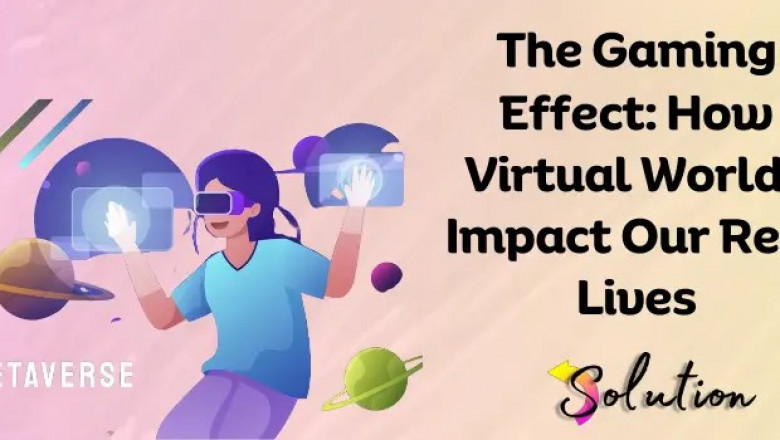views
In today’s interconnected era, the impact of virtual worlds on our real lives has become undeniable. Whether we’re diving into immersive video games, collaborating in digital workspaces, or socializing through metaverse platforms, virtual experiences are reshaping our habits, relationships, and perceptions of reality.
1. Digital Identity and Self-Perception
One of the most profound ways virtual worlds impact our real lives is through digital identity. Avatars, profiles, and customizable personas allow users to express themselves in ways they might not feel comfortable doing offline. This freedom can empower self-exploration and confidence—but it can also lead to identity confusion or social comparison.
2. Economic Opportunities in the Virtual Space
The rise of virtual economies—powered by NFTs, cryptocurrencies, and digital assets—demonstrates how real-world financial systems are merging with online platforms. Gamers earning income through play-to-earn models or creators selling virtual fashion are just a few examples of how virtual worlds impact our real-world livelihoods.
3. Virtual Relationships and Social Bonds
From multiplayer games to virtual reality meetups, people are forming genuine emotional connections online. These digital interactions can lead to long-lasting friendships and even romantic relationships. However, they also raise questions about the authenticity and depth of virtual bonds versus face-to-face interactions.
4. Influence on Mental Health
The psychological effects of immersive environments are a double-edged sword. On one hand, virtual worlds provide escapism, therapeutic experiences, and support communities. On the other hand, overuse or addiction can negatively impact mental well-being, disrupt sleep patterns, and fuel anxiety.
5. Changing the Nature of Work and Learning
Virtual reality (VR), augmented reality (AR), and collaboration platforms like the metaverse are revolutionizing education and the workplace. Remote teams now use digital avatars and VR rooms for meetings, while students attend virtual classes, making learning more interactive and accessible across geographies.
6. Ethical and Social Considerations
As virtual worlds grow more sophisticated, ethical concerns emerge: privacy, consent, digital harassment, and the regulation of virtual behavior. Understanding how virtual actions have real-world consequences is key to fostering respectful and inclusive digital environments.
Final Thoughts
The impact of virtual worlds on real life is a complex and evolving topic. As we spend more time in these spaces, it's essential to navigate them mindfully, recognizing their power to enhance—and sometimes challenge—our realities. From shaping identities to transforming industries, the digital world isn’t just a game anymore—it’s a part of who we are.
—
Would you like to add visuals, SEO metadata, or tailor it for a specific platform like Medium or WordPress?














Comments
0 comment